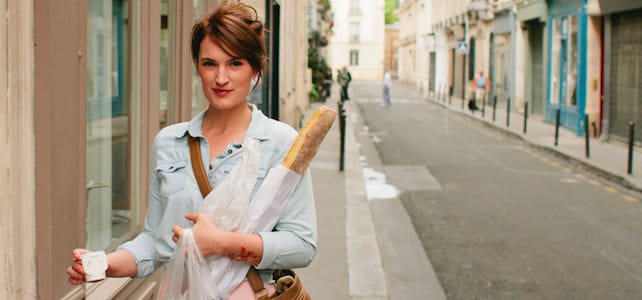I grew up in Paris and it wasn’t until I started paying for my own trips, and living abroad, that I discovered the different money habits of people around the world. When I moved to the UK, I went to open a bank account and was offered a credit card and a line of credit.
A what?
When I left France, I was introduced to the wonderful world of rewards, free miles, cash back… and its darker side, double digit interest. But my debt-free upbringing didn’t let me fall for that.
You see, in France, we generally only take on debt to pay for our houses. We are pretty averse to credit. What we call a carte de crédit, or a credit card, is actually a debit card, that will overdraw your current account if you spend too much, which usually triggers penalty fees. As a student, you are generally given a 100 euro or so overdraft, so you can pay your bills if your scholarship money or your part time job salary is a few days late. But debt is not a lifestyle.
Even in business school, which for France was really expensive at around $12,000 a year, most of my classmates didn’t take student loans. We found companies to pay our tuition via an apprenticeship, and in exchange, worked for them part time. I don’t have any close friends with a car loan, let alone consumer debt. We do have a few store cards that offer revolving credit, but again, they are pretty rare. I only borrowed money to buy a house and pay for other investments.
I think the aversion for debt is due to the hard times we’ve been through. My grandparents raised seven kids on one income post-WWII. Food was rationed and inflation was rampant. My grandma would rummage through the supermarket shelves to find products that were still marked at the pre-hike price. She would cook every meal from scratch and get hand-me-downs to dress her family. They only had one car that they drove late into retirement.
And my family is pretty average when it comes to money management. Most of my friends are quite thrifty. We brag about that nice find we got for a pittance, like that second-hand dress from the thrift store, or the free couch we found on the sidewalk. While French women are known for their sense of style, most of them have a basic wardrobe they customize with cheap accessories such as scarves, belts and jewelry.
We don’t look up to the Joneses, and if a family gets a brand new car or too big of a house, generally we think they are bad with money. It is not unusual for a young family to live in a one bedroom apartment until the firstborn is two or three, and another baby is on the way.
We are told from an early age to be financially independent from our parents. I started babysitting and tutoring younger kids while I was still in high school. My parents were still housing and feeding me, but if I wanted nice clothes, or to go out with my friends, I had to pay for it.
Without a credit card, I had to earn that money in advance. And once you start seeing how hard it is to make money, it hurts to spend it. Ever since I started making money, my parents asked what I was saving for. Not what I’d spend it on that week. They were talking car, tuition, a place of my own… That was the money mindset instilled.
I left home at 17 to go to college, which, luckily for us, was pretty much free for the first three years. But I still had to make ends meet on a small scholarship and with part-time jobs. Most of my friends left home and did the same, even though our parents lived in Paris, and we could have lived at home while in school. We just valued our independence.
Graduating without debt, or in my case, with a little bit of savings, is a great head start in your financial life. My classmates generally kept on living with roommates for a few more years, because rents in Paris are high. It makes saving for a down payment much easier. And not succumbing to lifestyle inflation allows you to save and invest while you don’t have the added burden of childcare or living on one income if your spouse stays at home.
We are lucky to have good benefits when it comes to healthcare, so it is rare to have to pay for private care. Most companies offer a health plan to cover extra dental and vision. And we have decent social security to look forward to in retirement. Even then, most people invest in the markets for the potential of additional income. And a vast majority aims at paying their mortgage before they retire.
Money dreams for the French are not material.
People want to travel, they have a sports passion or dream of taking a sabbatical to spend more time with their kids. We don’t go to the mall on weekends. We sit around a table, drink wine, eat great food, and talk. It is a simpler life, and I am glad to have been raised that way. It doesn’t mean I don’t appreciate collecting free miles and hotel nights on a reward credit card, though. I just make sure I don’t go into debt on material items in order to earn the points.
Pauline Paquin is the writer and founder of Reach Financial Independence. She aims to inspire readers, at any income level, to live their dreams fully and to make deliberate decisions to achieve freedom from work, the office and anything else that is holding them back.





